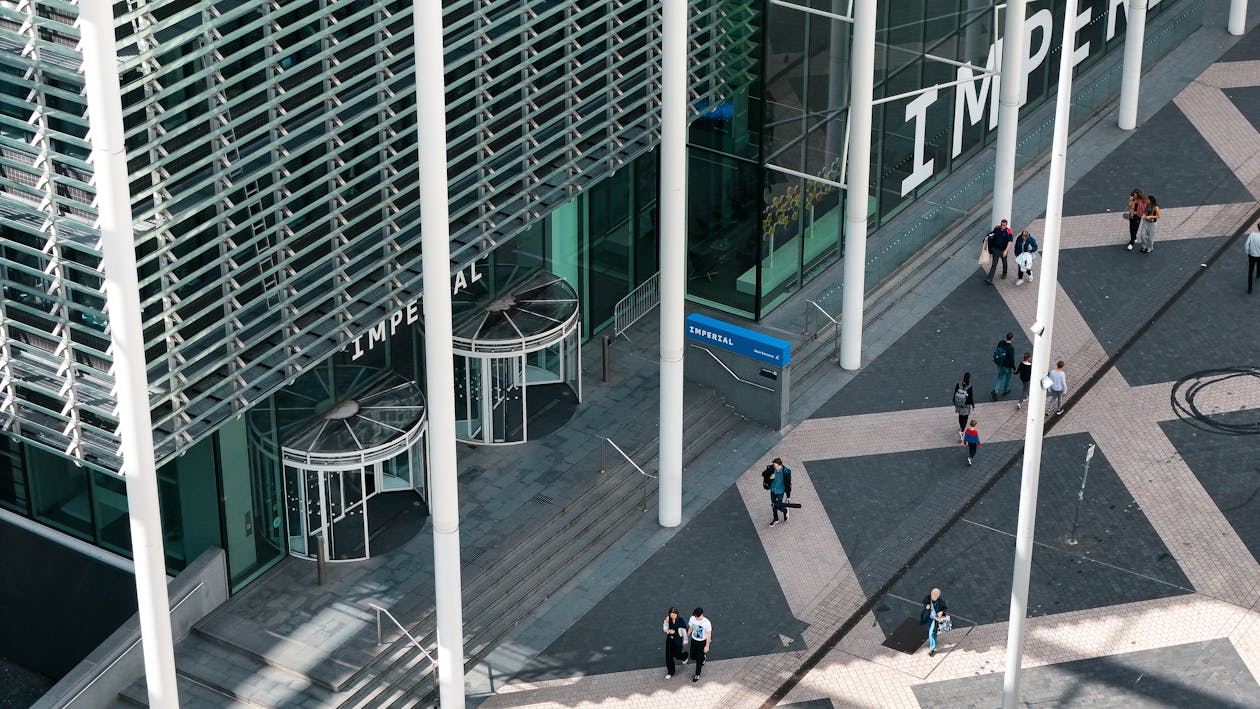A former Imperial College London professor has said NHS problems are caused by too many doctors being women.
Retired surgeon Dr Meirion Thomas has sparked controversy by claiming that rising numbers of female medical graduates are adding to workforce pressures inside the NHS.
Speaking to Times Radio, the former professor said women “have got to have babies”, arguing that maternity leave removes large numbers of early-career doctors from front-line rotas when the service is already strained.
Pressed on his view, he said: “You’re putting me on the spot now, and I’ll be hated for this, but the fact of life is, of course, women have got to have babies. Of course, they’ve got to have time to bring up their children.”
Meirion claimed that many of those returning from leave opt for reduced hours, a pattern he believes compromises the NHS’s ability to maintain consistent staffing levels. Referring to a photo from a previous strike, he said: “There were about 30 to 40 people in that one photograph, and there were two men. All the rest were women, so that tells me something.”

Imperial College London via Pexels
Calling current admission trends “a huge imbalance,” the surgeon continued: “The one problem is that medical schools now are taking 60 to 70 per cent women as medical students.”
This isn’t the first time Meirion has criticised the service, as he previously condemned the recruitment of practitioners from low-income nations, asserting that the UK often has “no idea if they are competent.”
His remarks drew an immediate rebuttal from Professor Kamila Hawthorne, chair of the Royal College of General Practitioners. She responded that gender diversity is a strength rather than a weakness: “We are proud of our track record on diversity and that women – all of whom are working their hardest to care for their patients – now make up 53 per cent of the GP workforce. It is vital that our medical workforce reflects the population we serve, and female GPs are a valued and much appreciated part of general practice.”
Kamila added that the relentless workload, not gender, is pushing practitioners to cut their hours: “The sad fact is that the job of a full-time GP is now largely unmanageable, and ‘part-time’ in general practice often means working what would normally be considered full time or even longer elsewhere and includes many hours of paperwork on top of patient appointments.”

via Pexels
Responding to these comments, Dr Thomas told The London Tab: “Sadly, the Royal College of GPs will not face up to the problem that 58.4 per cent of GPs work three days or less per week. It is counter-intuitive to suggest that this is caused by a “relentless workload”. Rather, this happens because GPs are contracted to, rather than employed by, the NHS and can work as they wish.
“Such minimal part-time working, which happens much less frequently in the hospital workplace, is inconsistent with best practice and especially with continuity of care, which is the service that patients most value.
“With regard to diversity, I believe that UK medical school places should be allocated equally to both genders and not as at present, where 60 to 70 per cent of places are allocated to women. Alternatively, medicine should be made graduate entry.”
The former professor added: “May I confirm that I have absolutely nothing against female GPs. It is just the inequality of numbers in training which I object to.”
The debate came as NHS resident doctors went on a five day strike at the end of July. Thousands of residents are demanding a 29 per cent pay rise, a figure the government and the British Medical Association failed to reconcile in recent talks.
Although widespread uncertainty around operations and appointments is anticipated, NHS England says it has measures in place to “minimise disruption to patient care and ensure life-saving care continues.”
Initial figures from the NHS suggested 93 per cent of planned operations, tests and procedures still went ahead, down by 7.5 per cent compared to the strike last June.
The British Medical Association dismissed the statistic, arguing that complicated rota patterns make precise numbers impossible: “NHS England’s claim that the majority of England’s 77,000 resident doctors chose to ‘join the NHS-wide effort to keep the services open’ requires a huge stretch of the imagination, given it is almost impossible to know the exact number of residents working on any given day because of complex work patterns, on-call schedules and the strike spread across a weekend.”
Professor Kamila Hawthorne, Chair of the Royal College of GPs, told The London Tab: “We are proud of our track record on diversity and that women – all of whom are working their hardest to care for their patients – now make up 53 per cent of the GP workforce.
“It is vital that our medical workforce reflects the population we serve, and female GPs are a valued and much appreciated part of general practice.
“The sad fact is that the job of a full-time GP is now largely unmanageable, and ‘part-time’ in general practice often means working what would normally be considered full time or even longer elsewhere and includes many hours of paperwork on top of patient appointments. This is not safe or sustainable for patients or GPs.
“We desperately need to recruit more GPs and retain the brilliant GPs that we already have. The Government’s 10 Year Health Plan sets out ambitious plans for ‘thousands more’ and we are keen to see more detail so that our GP teams have the support they need to deliver more care and services in their local communities, where patients want them.
“General practice and the wider NHS could not function without the dedication of GPs and healthcare professionals who are mothers, fathers or have other caring responsibilities. We value them highly and should be applauding their efforts.”
NHS England and Imperial College London have not yet responded to a request for comment.
The General Medical Council declined to comment.
Featured image via Pexels/Youtube
